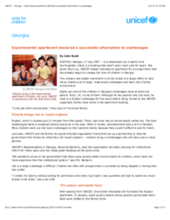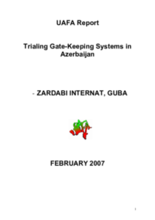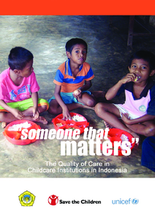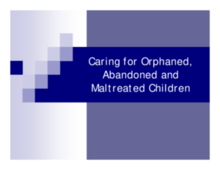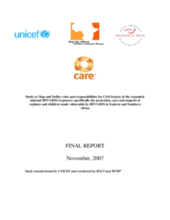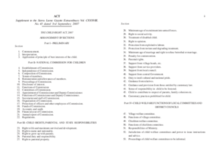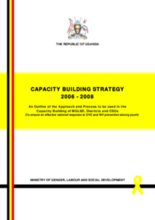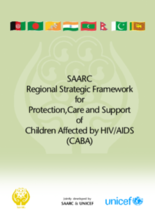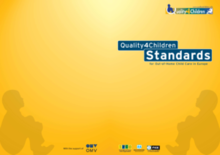Displaying 1551 - 1560 of 1759
In Georgia, UNICEF and EveryChild have teamed up to place children in need of alternative care in small, supervised apartments as an alternative to orphanages.
Documents implementation of Azerbaijan's national de-institutionalisation and alternative care programming
Comprehensive evaluation of national responses and level of care standards for children without parental care in Indonesia.
Evaluates targeting and human capital impacts of Brazil's Bolsa Familia Program in comparison with Mexico's Oportunidades, and Chile's Chile Solidario.
A powerpoint presentation on the research findings of the Bucharest Early Intervention Project team. Includes comparisons of children raised in institutional care, vs. children placed in foster care, vs. children raised in the community.
This study commissioned by UNICEF, Hope for African Children Initiative (HACI), and World Conference on Religions and Peace (WCRP) maps and defines roles and responsibilities for Civil Society in the expanded national HIV/AIDS responses. The report pays particular attention to the protection, care and support of orphans and children made vulnerable by HIV and AIDS in Eastern and Southern Africa.
The Child Rights Act of 2007 provides for the promotion of the rights of the child compatible with the Convention on the Rights of the Child, adopted by the General Assembly of the United Nations on 20th November, 1989, and its Optional Protocol of 8th September, 2000, and the African Charter on the Rights and Welfare of the Child, and for other related matters.
This document sets out the strategy to build and strengthen capacity to provide leadership, coordination and operational oversight at the central, regional, and district levels under the CORE Initiatives Uganda to prevent OVC and HIV among youth.
A regional strategic framework for coordinating policies to protect, care and support children affected by HIV/AIDS in South Asia.
A set of standards on the process of a child or young person entering care, being cared for, and leaving care, based primarily on the views of children, families, and caregivers.

